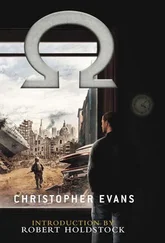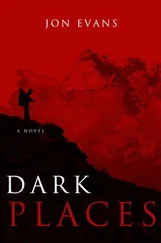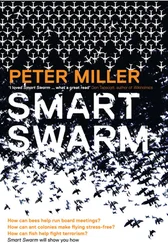She hesitated. Swallowed. “What does that mean?”
“You know exactly what it means.”
We stood as tense as coiled springs, breathing hard, staring at each other.
“James,” Sophie said, in a little-girl voice unlike any I had ever heard from her before, “are you breaking up with me?”
Those words seemed to echo through the room.
I struggled for breath. “I don’t know.”
“You don’t know.” A hollow sound almost like the beginnings of laughter emerged from her mouth. “Well. When you figure it out, maybe you could be so kind as to keep me informed.”
Seconds ticked past. I tried to hold on to my rage.
“I understand. For what it’s worth. It’s actually not a big surprise. I knew it might happen.” She took a deep breath. “And it wouldn’t actually be the end of the world, right? It just – it just feels like it.” Her mask cracked for a second, and she had to inhale deeply again before regaining her Spock-like cool. “If that’s what you want, I won’t make it hard on you. You know me. I won’t scream or weep or write you a nasty letter of reference or anything. I’m, you know, it’ll be reasonable. We’re adults, right? Maybe we can be friends.”
I didn’t know what to say, so I said nothing. She didn’t look at me. After a moment she wiped tears from her cheeks with an impatient motion. I had only ever seen her cry twice before; on the night we had first met, and only a few hours ago, greeting me in Clark’s office. Witnessing her tears and knowing that I had caused them felt like being punched in the gut. I wanted to rush to her to comfort her, had to hold myself back.
“It’s easy for you.” Her voice was low and unsteady. “You can find someone else. I’m sure there are lots of girls, women, who’d love to… ” She left the sentence incomplete. “It’s different for me. You know what the chance is of finding another man who actually understands me? And likes me too?” She did laugh then, hollowly, cynically. “I think the technical term is ‘astronomical’.”
I stared at her.
“You look surprised,” she said.
“I guess I am. You never acted like I was so important to you.”
“Is that what you want? To be important?”
“You think it’s that simple?” I asked back, stung.
“I don’t know. You tell me.”
“It’s not just this, you know. If it was just you keeping a secret, maybe I could be OK with that. It’s not about being important. You’re smarter than me, you’re more important, fine, I can live with that. But I can’t even be trusted to open my mouth. Not during important conversations.”
“What are you talking about? I have never said anything even remotely like that.”
“Maybe not. But it’s in what you do. Just now, with Clark. All you wanted from me was to shut the hell up. “
“I never meant to -” Sophie shook her head, helpless to find the right words. “James, I’m sorry. I never meant to make you feel small. You know that, right? I’m so sorry.”
“Well. I’m sorry too.”
We stared at each other. We were both trembling.
“I can do better,” she said. “I can treat you better. I will. I fucked up, and I’m sorry, and I can make that up to you. But I can’t tell you everything. I wish I could. But you don’t know what’s at stake.”
“Because you won’t tell me.”
“I want to. I so want to. I just can’t. Do you believe that much?”
I didn’t say anything.
“Because if you don’t, then there’s really no use even… ” She didn’t finish. Her whole body, and every muscle in her face, was tense.
“Yes,” I said quietly. “I believe you want to tell me.”
“Good.” She exhaled with relief. “Thank you. I’m sorry. But I have to do this. I probably shouldn’t even tell you this much, but, James, the world is changing. Maybe it’s already changed. And as far as I can tell I’m the only one who can stop things from falling apart. If I fuck up -” She looked like she didn’t even want to pursue that thought to its logical conclusion, but forced herself: “If things go wrong, I think a lot of people are going to die. Not just people. Governments. Whole societies.”
I stared at her, a little rocked by her words, and by the palpable strain in her voice. Sophie wasn’t prone to hyperbole. Understatement, if anything. But at the same time, I was infuriated even further by her invocation of some mysterious threat whose existence I was supposed to just accept without explanation.
“Are you still going to come with me tomorrow?” she asked eventually, in a dull voice. “Maybe you shouldn’t. You’re still recovering. Maybe it would be best for both of us to go back to our corners and think things over.”
I considered. And wondered if there was some other reason she didn’t want me to come. “No. I’m going. Jesse’s part of this too, isn’t he? And Anya?”
She didn’t reply.
I shook my head, angry and frustrated. “I’m tired. We’ve got an early flight. Let’s try to get some sleep.”
For days I had ached to hold Sophie in my arms, but that night we slept on separate sides of the Holiday Inn’s king-size bed. Despite our exhaustion we lay motionless, both awake, both silent, for a long time, before I finally managed to find a twisting path to sleep.
As we swooped down towards Toussaint International I caught a glimpse of a colossal shantytown like a human ant farm crammed onto the spit of land between airport and sea. I had never before seen anything like that vast agglomeration of corrugated tin and mud. Haiti, by far the poorest country in the Western Hemisphere even before it had been devastated by 2010’s terrible earthquake, was the first real Third World nation I had ever visited.
I realized as we landed that if Jesse wasn’t waiting for us, we had no fallback plan. The thought was more than a little scary. This wasn’t travel as usual, that wasn’t a European or Japanese city out there beyond the airport: Port-au-Prince was a lawless metropolis seething with desperate people ruled by a corrupt government. There had been food riots here just last month. Anything might go wrong, and we were hopelessly unprepared if it did. Too late I began to kick myself for being such an idiot. I didn’t even know the names of any hotels, and Haiti was so behind the technological times that my new iPhone might not work here even as a phone, let alone an Internet device.
We descended from the 737 onto the tarmac. The blazing sun felt heavy, and the tropical air was thick and damp. The signs were in French. Like all Canadians I had studied French in high school, but I hadn’t tried to speak it in years. Fortunately, the woman at the immigration booth stamped our passports without asking any questions, and waved us on. We walked untroubled through Customs, past a forlorn souvenir stand, through double glass doors, and outside to a little walkway protected by a waist-high concrete wall.
It felt like being expelled from civilization into jungle red in tooth and claw. On the wall’s other side a hundred men in ragged clothes shouted and gesticulated as if warning us of imminent death. The only word of the cacophony I understood was “taxi!” One man actually reached over the wall to grab one of our bags, and I had to pull it away. The airport security guards looked amused and made no attempt at intervention.
The last thing in the world I wanted was to walk into that human maelstrom. I glanced at Sophie beside me. She too looked overwhelmed.
“Maverick!” a familiar and amused voice called. “Sophie!”
I looked and relaxed. Jesse stood near the end of the walkway, tall, dark, and rakishly good-looking, wearing a Sigur Ros T-shirt, expensive sunglasses, jeans with Chinese dragons painted on them, and, as usual, a wide grin that proclaimed it’s good to be me . With him was a big black man with ragged shorts, a faded red polo shirt, and golden teeth. When we emerged the army of touts and taxi drivers tried to descend on us, but Jesse’s companion repelled them with his looming presence and glittering scowl.
Читать дальше












